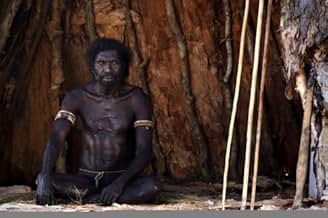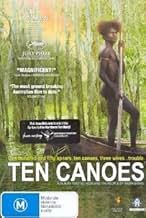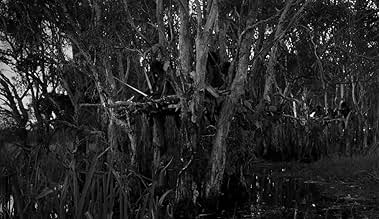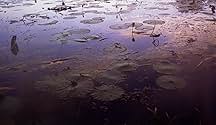In Australia's Northern Territory, a man tells us a story of his people and his land. It's about an older man, Minygululu, who has three wives and realizes that his younger brother Dayindi m... Read allIn Australia's Northern Territory, a man tells us a story of his people and his land. It's about an older man, Minygululu, who has three wives and realizes that his younger brother Dayindi may try to steal away the youngest wife.In Australia's Northern Territory, a man tells us a story of his people and his land. It's about an older man, Minygululu, who has three wives and realizes that his younger brother Dayindi may try to steal away the youngest wife.
- Directors
- Writer
- Stars
- Awards
- 17 wins & 9 nominations total
- Dayindi
- (as Jamie Dayindi Gulpilil Dalaithngu)
- …
- The Storyteller
- (as David Gulpilil Ridjimiraril Dalaithngu)
- Directors
- Writer
- All cast & crew
- Production, box office & more at IMDbPro
Featured reviews
The voice-over narration of David Gulpilil is excellent. The cinematography is awesome. The film oozes with authenticity and was filmed on location in very remote areas of the Northern Territory of Australia.
It's tragic that this culture should be so remote and foreign to Australians (what to speak of others elsewhere in the world).
This film is full of the dignity of this honorable race of people who have so much to be proud of.
The narrator tells a story about men hunting for goose eggs in canoes while one tells a story from the ancient times. Both stories are woven exquisitely together to form a dream-like telling. The cinematography captures the actual remote locations the tribe inhabits. The characters are portrayed as authentically as can be, probably because they are. (At least, it seemed that way to a white guy from Boston.) I don't know if any are actual actors.
If you have interest in any aboriginal culture or anything Australian, you should see this movie. If you love great story telling, you must see it.
Set a thousand years ago in central Arnhem Land near the Arafura Swamp in northern Australia, east of Darwin, a group of Ganalbingu tribesmen embark on a hunt for magpie geese, a wild bird used to sustain the tribe. To navigate the crocodile-infested swamp, elder Minygululu (Peter Minygululu) leads the tribe in building canoes made out of bark. When he discovers that Dayindi (played by Gulpilil's son, Jamie) has a crush on his third wife, he tells him a story set in a mythical time after the great flood that explains how his people developed laws to govern their behavior, the same laws used by the tribes today. To distinguish between the past and the "present", De Heer uses muted color to show the ancient landscape and black and white for the more modern story.
In the beginning, Ridjimiraril (Crusoe Kurddal) lives with his three wives, Banalandju, Nowalingu (Frances Djulibing), and Munandjarra in a camp with others, including Birrinbirrin (Richard Birrinbirrin), an overweight elder whose sole pleasure in life is to eat honey. Ridjimiraril's younger brother, Yeeralparil (Jamie), who lives in the single men's camp, fancies the beautiful Munandjarra and spends much time stealing visits to the other camp, hoping to catch a glimpse of her. When a stranger approaches without warning, the men are frightened, especially when he tells them that he wants to trade objects of magic.
The local sorcerer warns the men of danger but life proceeds normally until the jealous Nowalingu disappears after a fight with Banalandju. Though the others believe that she simply ran away, Ridjimiraril is convinced that she was abducted by the stranger and receives confirmation for his fear when an old uncle appears and says that he saw his wife in a camp with the stranger. The men are galvanized into action and a war party is prepared. Through myth and illuminating visuals, Ten Canoes generates a greater awareness and understanding of indigenous Australian culture and acts as an impressive counterweight to the argument that Aborigines should give up their past and join the modern world. That the film is entertaining and deeply moving as well as informative is a very welcome bonus indeed.
The cinematography here — all the cinematic values — are only slightly apparent and when they declare themselves, it is in the service of the story: switching from subdued color to bright to signal the shift of what story you are in. Otherwise, the camera is either in conventional documentary mode or in space following spirits across landscapes as they voyage from waterhole python ouroboros and back.
What we have here is good old oral storytelling supplemented by image, and highly structured. Essentially everything is told by an offscreen aboriginal narrator, whose convoluted beginning establishes all sorts of narrative pockets that are revisited later. The story is a tree, we are told and in its telling we visit many branches. There is a sort of beginning, but it is nearly too complicated to describe. There is an ending, but no. After a chuckle the narrator tells us he has no idea how it ends.
Ostensibly, the story is told by the off-screen narrator, of a hunting party of aboriginal men, who make ten bark canoes and go hunting and gathering in the swamp. Over that period in the story, a wise man tells a story to his impatient much younger brother. That "inner" story shifts to color. It is supposed to be in a time in between creation and the full solidifying of men on earth. So the characters in the inner story are played by the folks in the outer one, and the main threads are folded together: a matter of the young man's desire for the older brother's youngest wife.
But that is the merest of threads. We are told that the story is a tree. We literally see that tree shorn of bark and made into simple canoes. We literally see our hunters — in both stories — camping in trees. The story seems to ramble. There is sorcery, mystery, charmed turds. There is revenge, jokes, anthropology. Its all of a context. A point of all this is that there cannot be a point in the western sense. There isn't a linear narrative here with a message. There is a walkabout through a storyspace.
The very first event we see tells us this in a remarkable way. Our ten men are walking single file and the last man halts the party. He refuses to be last, he says, because someone is farting. The line is consequently reshuffled. It is a gentle device, one that sets the magic for what "follows," a non-linear shuffle.
The joke at the end has the same form. The last one (the youngest wife) is not how the thing ends.
The entire production, we are told, uses aboriginal talent exclusively.
You want to know the narrative power of carefully folded (meaning here: intuitively structured) narrative? See this.
Ted's Evaluation -- 3 of 3: Worth watching.
Did you know
- TriviaThe title "Ten Canoes" was inspired by a photograph shown to Director Rolf de Heer by Aboriginal actor David Gulpilil. The picture was of group of ten native men in their bark canoes on the Arafura swamp. The photo was taken by anthropologist Dr Donald Thomson who worked in central and north-eastern Arnhem Land seventy years earlier during the mid-1930s.
- Quotes
The group: [all walking in a line]
Canoeist: Everyone stop!
[all stop and turn]
The Storyteller: That one is Djigirr. Djigirr talk too much, but maybe he heard something.
Canoeist: I refuse to walk at the end. Someone ahead keeps farting.
The group: [laughter] Not me. Not me.
Canoeist: It's you again. You're always so silent. Silent but deadly. Admit it.
Canoeist: Alright, it's me.
Canoeist: You're rotten inside.
Canoeist: I'm rotten inside.
Canoeist: You get to the end of line.
- Alternate versionsThere are currently three versions of the film:
- (1) the Yolngu languages dialogue version with English subtitles and narration storytelling spoken in English by David Gulpilil;
- (2) the Yolngu languages dialogue version with English subtitles and narration storytelling spoken in Mandalpingu by David Gulpilil;
- (3) the Yolngu language only version without any subtitles
- ConnectionsEdited into Terror Nullius (2018)
- How long is Ten Canoes?Powered by Alexa
Details
- Release date
- Country of origin
- Official site
- Languages
- Also known as
- Ten Canoes
- Filming locations
- Production companies
- See more company credits at IMDbPro
Box office
- Budget
- A$2,200,000 (estimated)
- Gross US & Canada
- $283,654
- Opening weekend US & Canada
- $14,076
- Jun 3, 2007
- Gross worldwide
- $3,360,455
- Runtime
- 1h 30m(90 min)
- Color
- Sound mix
- Aspect ratio
- 2.35 : 1



















